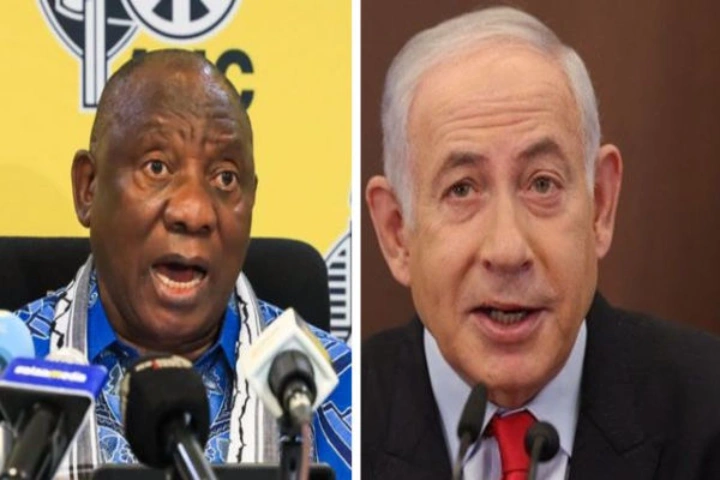On Friday, the International Court of Justice (ICJ) at The Hague is expected to deliver a provisional verdict on South Africa’s case filed earlier this month, that Israel stop what it called its genocide in Gaza. Describing Israel’s leadership as “genocidal inciters”, South Africa is hopeful the initial verdict will put pressure on Israel to stop its operations in Gaza.
South Africa is backed by four Islamic states, Turkey, Jordan, Pakistan, and Malaysia, and the Organisation of Islamic Cooperation which has 57 member states, most of them Muslim. Brazil, Colombia, and Bolivia make up the South American support base. Belgium and Slovenia are the only two European countries to support South Africa, while Germany, France, Austria, and the Czech Republic have opposed and the rest of the continent has stayed quiet.
What happens if the ICJ provisional verdict goes against Israel? Pretty much nothing as the court has no way to ensure the implementation of its verdict. Even if the matter moves to the UN Security Council, Israel can rest assured that its strongest ally, the U.S., will veto it.
South Africa knows and understands these harsh realities, so why did it persist with its appeal to the ICJ?
Political Alignment
South Africa’s ruling party, the African National Congress (ANC), and the Palestine Liberation Organisation (PLO) go back a long way. The ANC was born in the fight to overturn apartheid in South Africa, while the PLO under Yasser Arafat was fighting to liberate the Israeli-occupied Palestinian territories.
There was strong camaraderie between Arafat and Nelson Mandela, which continued after apartheid ended. Mandela’s words resonate even today: “Our freedom is incomplete without the freedom of the Palestinians.” He as president established diplomatic ties with the PLO.
Humanitarian Lobby
But there’s a lot more riding here than nostalgia. Rajiv Bhatia, former high commissioner of India in South Africa, outlined three possibilities behind South Africa’s ICJ move. Firstly, the large number of human rights activists/lawyers who come from South Africa. The struggle against the apartheid regime in the first half of the 20th century laid the groundwork for the formation of human rights NGOs and individuals fighting for humanitarian causes, constituting groups like the Lawyers for Human Rights who advocate and work as watchdogs.
Redeeming Image
Add to that a political element: an opportunity for South Africa to redeem its lost ground in Africa. “Due to its rich political history with Mandela, the country got a lot of attention from the West. However, with the rise of other nations like Egypt, Algeria, etc., in the bloc, South Africa has had to strive harder,” said Bhatia. And the ICJ case has, if only temporarily, given the country some international attention.
Nothing To Lose
Trade is another element: South Africa’s trade with Israel is no more than $200 million. On the other hand, trade with Saudi Arabia is far more. South Africa probably hopes to score some political brownie points with the Saudis although the irony is, that it was the Hamas attack on Israel, that triggered the Gaza war and derailed Riyadh’s plans to bring the Jewish state into the Arab mainstream.
In other words, the Saudis, the UAE, and possibly some other Arab states were seeking to dump the Palestinians and build ties with Israel, which is the only country in the region that could take on Shia Iran. But Israel’s war on Gaza and the mounting toll of Palestinian lives has angered the Arab street, and for now, at least, the Saudis have to ensure they are not seen as betraying the Palestinians.
Small Countries, Big Egos?
Leaving aside South Africa and Israel, in 2019, Gambia a tiny country on the west coast of Africa, filed a case against Myanmar charging it with committing genocide on its minority Rohingyas. Gambia was widely praised although there must have been some speculation about its motivations.
Was it encouraged by some big power which had a bone to pick with Myanmar? Was Gambia rewarded in some way? Nothing is clear although there’s little doubt such actions do bring some world attention and possibly even goodwill. Actions driven by humanitarian concerns are generally seen positively and could even help such countries leverage development or other aid.
(The story is being republished courtesy StratNews Global)




















